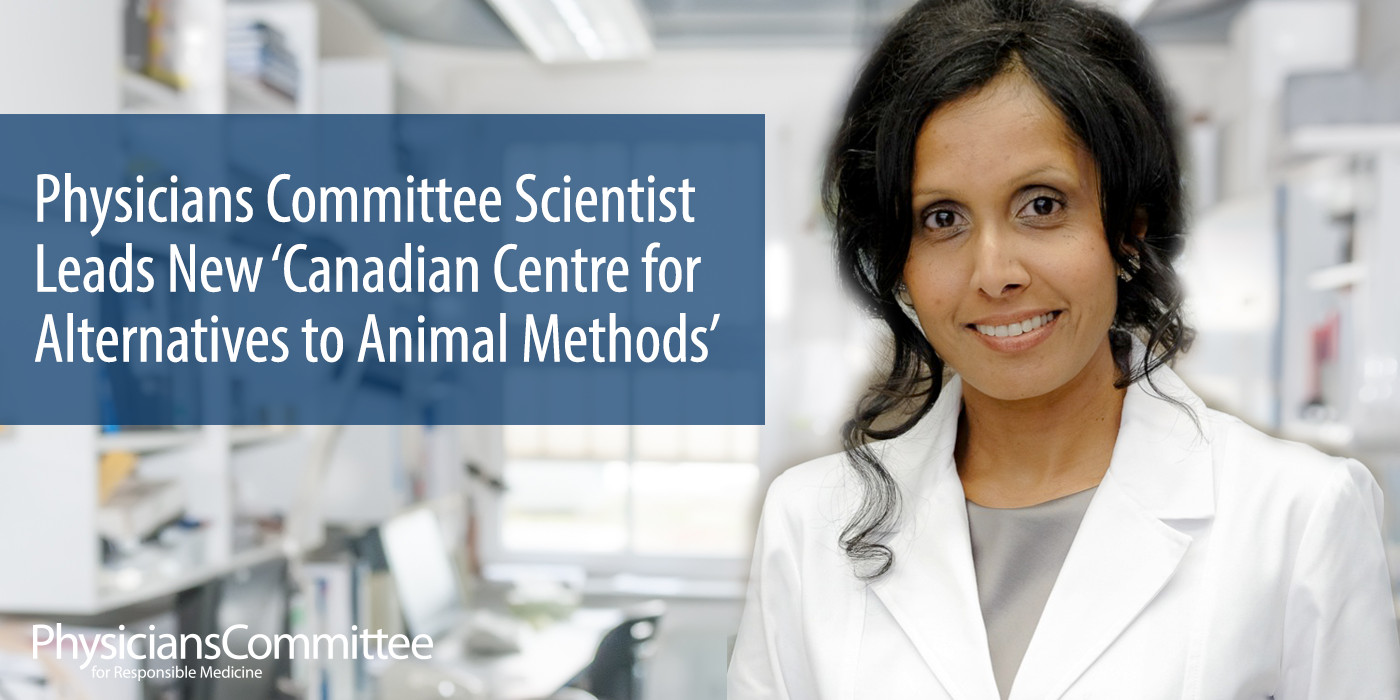Physicians Committee Scientist Leads New Canadian Centre for Alternatives to Animal Methods

From the back of a napkin to reality: The Physicians Committee’s Charu Chandrasekera is set to lead the first Canadian center for the research and validation of alternative methods.
From the back of a napkin to reality: The Physicians Committee’s Charu Chandrasekera is set to lead the first Canadian center for the research and validation of alternative methods.
Millions of animals are used each year for studies of fundamental biology and disease, drug development, and toxicity testing. Despite decades of extensive research—often in animals—we still do not fully understand human biology and disease mechanisms. Fully 96 percent of drugs tested to be safe and effective in animals fail in human clinical trials. Therefore, there is an urgent need to transition from animal testing to humane and human-relevant methods to advance human medicine.
Many countries across the globe have already established nonanimal alternatives research and testing centers, and finally Canada joins them. Last week the University of Windsor in Windsor, Ontario, Canada, announced that it has established the first Canadian center dedicated exclusively to human-centered biomedical research and testing, the Canadian Centre for Alternatives to Animal Methods (CCAAM) and its subsidiary, the Canadian Centre for the Validation of Alternative Methods (CCVAM).
The University of Windsor is a comprehensive academic institution located on the Canadian border, across the river from Detroit, Mich. Since 1857, the University has been a progressive and inclusive community that comes together to study, to learn, to teach, and to serve. It places high priority on creativity and collaboration, and respect for ethical social values. CCAAM will contribute to that legacy.
The vision of CCAAM is the replacement of animals in Canadian biomedical research, education, and regulatory testing through 21st century science, innovation, and ethics. CCAAM/CCVAM will develop, validate, adopt, and promote alternatives in Canada through extensive research, academic, and regulatory initiatives in partnership with national and international academic, industry, government, and public sectors, including Health Canada and Environment Canada.
CCAAM plans to establish a state-of-the-art research infrastructure to enable fully humanized research and testing using only human biomaterials and human-based methods. Through in-house, external, and multicenter collaborative efforts, CCAAM will develop research initiatives to study fundamental human biology in health and disease.
CCAAM will develop unique first-in-its-class undergraduate and graduate academic programs in animal replacement science to educate the next generation of scientists, ethicists, and policymakers.
Through these various initiatives at CCAAM/CCVAM, Canada will officially join the global alternatives community and contribute to this field in a uniquely Canadian way.
The Physicians Committee plans to collaborate with CCAAM closely on many fronts to replace the use of animals in research, education, and toxicity testing. The Physicians Committee’s vice president of research policy, Kristie Sullivan, M.P.H., and director of research advocacy, Ryan Merkley, will serve on CCAAM’s advisory council.







